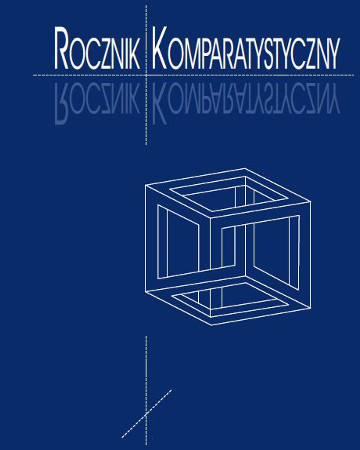





| Autorzy: |
S Satish
Kumar
University of Georgia |
| Słowa kluczowe: | komparatystyka literacka teatry hinduskie wielojęzyczność wielokulturowość Bharatendu Harishchandra Habib Tanvir |
| Data publikacji całości: | 2017 |
| Liczba stron: | 26 (203-228) |
| 1. | Ahmad, Aijaz. “Post-Colonial Theory and the Post-Condition”. The Socialist Register 33 (1997): 353–381. |
| 2. | Bhabha, Homi K. The Location of Culture. London: Routledge, 1994. |
| 3. | Dalmiya, Vasudha. Poetics, Plays, and Performances: The Politics of Modern Indian Theatre. New Delhi: Oxford University Press, 2006. |
| 4. | Das, Sisir Kumar. A History of Indian Literature 1800–1910 Western Impact: Indian Response. New Delhi: Sahitya Akademi, 2006a. |
| 5. | ------. A History of Indian Literature 1911–1956 Struggle for Freedom: Triumph and Tragedy. New Delhi: Sahitya Akademi, 2006b. |
| 6. | ------. “Shakespeare in Indian Languages.” The Jadavpur Journal of Comparative Literature 36 (1998–99): 111–136. |
| 7. | Dev, Amiya. The Idea of Comparative Literature in India. Calcutta: Papyrus, 1984. |
| 8. | ------. “Towards and Intercultural View of the Lyric”. The Renewal of Song Renovation in Lyric Conception and Practice. Eds. Earl Miner, Amiya Dev. Calcutta: Seagull Books, 2000. 144–151. |
| 9. | Dev Sen, Nabaneeta. “The Concept of Indian Literature: Today.” The Jadavpur Journal of Comparative Literature 16–17 (1978–1979): 97–106. |
| 10. | Ghosh, Manomohan. The Natyashastra: Ascribed to Bharata-Muni Volume II. Calcutta: Manisha Granthalaya Pvt. Ltd., 1995. |
| 11. | Kabatchnik, Amnon. Blood on the Satge, 480 BC to 1600 AD. Lanham: Rowman and Littlefield, 2014. |
| 12. | Karnad, Girish. “Theatre in India.” Daedalus 118.4, Another India (Fall, 1989): 330–352. JSTOR, Accessed: 16/05/2018. Web. Mukherjee, Sushil Kumar. The Story of the Calcutta Theatres, 1753–1980. Calcutta: K. P. Bagchi and Company, 1982. |
| 13. | Sarcar, Pabitra. “Jatra: The Popular Traditional Theatre of Bengal.” Journal of South Asian Literature 10.2/4, THEATRE IN INDIA (Winter, Spring, Summer 1975): 87–107. JSTOR, Accessed: 16/05/2018. Web. |
| 14. | Segal, Zohra. “Theatre and Activism in the 1940s.” India International Centre Quarterly 24. 2/3. Crossing Boundaries (Monsoon 1997): 31–39. http://www.jstor.org/stable/i23005424 [accessed: 20.01.2015]. |
| 15. | Sen, Sukumar. History of Bengali Literature. New Delhi: Sahitya Akademic Print, 1971. |
| 16. | Soyainka, Wole. Myth, Literature and the African World. Cambridge: The Cambridge University Press, 1976. |
| 17. | Tanvir, Habib. “Theatre Is in the Villages.” Social Scientist, 2.10 (May, 1974): 32–41. JSTOR [accessed: 20.01.2015]. |
| 18. | Thapar, Romila. “Reflections on Nationalism and History”. Romila Tapar, A. G. Noorani, Sadanand Menon. On Nationalism. New Delhi: Aleph Book Company, 2016. |